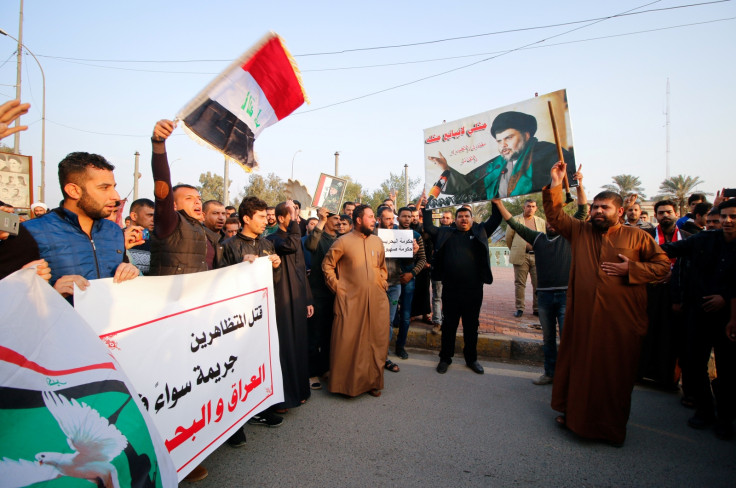Beheadings, hangings and firing squads: the death penalty is alive and kicking in the Gulf
Britain sees executors such as Saudi Arabia, Bahrain and Kuwait as vital allies after Brexit.

Abbas al-Samea, a school teacher, was shot dead in Bahrain last Sunday (15 January 2017), even though he had an alibi from the school where he taught. He was executed by firing squad along with two other men, who all said police interrogators subjected them to torture, including electric shocks, beatings and sexual assaults, in order to obtain false confessions.
Sami Mushaima signed a confession document that he could not read; he was illiterate. The third man, a teenager, Ali al-Singace, was only 18 at the time of the alleged offence. He had been harassed by police since the age of 15. When he refused to work as an informant, they savagely beat him.
All the men were from opposition families, and even if they were not politically active themselves, it looks like they were targeted to punish their families.
The final insult – and breach of international law – was preventing the families from burying the bodies in a place of their choosing, leading to a ghostly procession of three empty coffins through Bahrain's streets.
Concerns there have now turned to two more men, Mohammed Ramadan and Husain Moosa, who were also sentenced to death through torture.
Bahrain's executions were the first since 2010. Soon after, Kuwait followed suit, hanging seven people on Wednesday (25 January) – the country's first executions since 2013. Perhaps they were both inspired by their larger neighbour, Saudi Arabia, where beheadings are commonplace. Around 154 people were executed there last year, and two more have been killed already in 2017.
The parallels do not stop there. Bahrain and Saudi Arabia share a tendency to use the death penalty against political opponents, and people accused of involvement in protests calling for reform. Meanwhile, Saudi Arabia and Kuwait share an appalling view that children should face the death penalty. In January 2016, the Saudi authorities executed Ali al Ribh.
British politicians are quite happy to do business in the Gulf, which is seen by some as a vital market once Britain leaves the European Union
Ali was arrested while at school, for allegedly taking part in protests aged just 17. Three other juveniles convicted for protest-related offences are still on Saudi's death row. Dawoud al Mahroon, Ali al Nimr and Abdullah al Zaher remain under sentence of death for alleged offences which took place when they were aged 17, 17 and 15 respectively. Sadly, Kuwait has recently indicated it may follow suit, passing a law making 16 year olds eligible for the death penalty.
This should matter to those of us in the UK, Europe, and US because our governments are close allies with all of these Gulf countries. Although the UK has abolished the death penalty domestically and is committed in principle to opposing its use around the world, British politicians are quite happy to do business in the Gulf, which is seen by some as a vital market once Britain leaves the European Union.
When there is so much business to be done, human rights seem to be taking a back seat. The UK provides assistance to the police in Saudi Arabia and death row guards in Bahrain, but this proximity has done little to make their security forces stop torturing suspects into making false confessions or putting protesters on death row.
This active assistance for security forces in the Gulf means that the UK has a responsibility to work against the death penalty and related human-rights abuses. The government – from the prime minister down – must make it crystal-clear that handing down death sentences to political opponents, torture victims and children is unacceptable, and would result in this assistance being shut off. Anything less risks leaving Britain complicit in some of the worst excesses of the death penalty.
Maya Foa is the director of Reprieve's Death Penalty team.
© Copyright IBTimes 2025. All rights reserved.






















